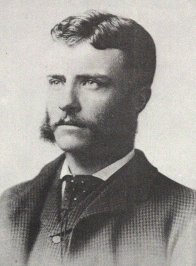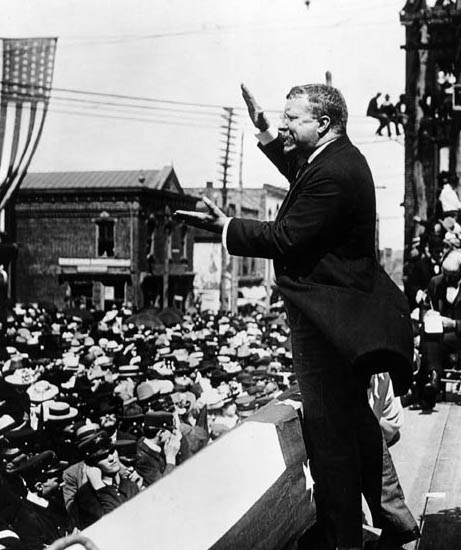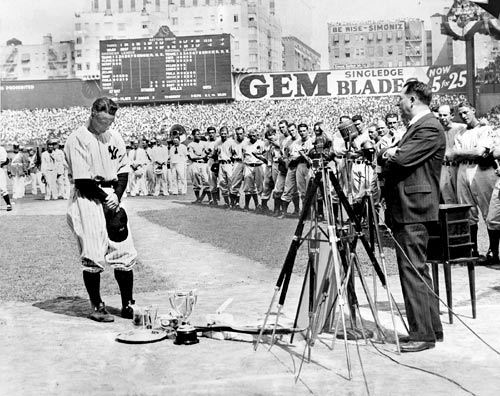If a man wishes to become a great orator, he must first become a student of the great orators who have come before him. He must immerse himself in their texts, listening for the turns of phrases and textual symmetries, the pauses and crescendos, the metaphors and melodies that have enabled the greatest speeches to stand the test of time. There was not currently a resource on the web to my liking that offered the man who wished to study the greatest orations of all time-from ancient to modern-not only a list of the speeches but a link to the text and a paragraph outlining the context in which the speech was given. So we decided to create one ourselves. The Art of Manliness thus proudly presents the “35 Greatest Speeches in World History,” the finest library of speeches available on the web.
These speeches lifted hearts in dark times, gave hope in despair, refined the characters of men, inspired brave feats, gave courage to the weary, honored the dead, and changed the course of history. It is my desire that this library will become a lasting resource not only to those who wish to become great orators, but to all men who wisely seek out the great mentors of history as guides on the path to virtuous manhood.
I know that readers of blogs are often more likely to skim than to read in-depth. But I challenge you, gentlemen, to attempt a program of study in which you read the entirety of one of these great speeches each and every day. I found the process of compiling and reading these speeches to be enormously inspiring and edifying, and I feel confident that you will find them equally so.
How did we compile this list?
Great oratory has three components: style, substance, and impact.
Style: A great speech must be masterfully constructed. The best orators are masters of both the written and spoken word, and use words to create texts that are beautiful to both hear and read.
Substance: A speech may be flowery and charismatically presented, and yet lack any true substance at all. Great oratory must center on a worthy theme; it must appeal to and inspire the audience’s finest values and ideals.
Impact: Great oratory always seeks to persuade the audience of some fact or idea. The very best speeches change hearts and minds and seem as revelatory several decades or centuries removed as when they were first given.
And now for the speeches.
Bookmark this on Delicious
Theodore Roosevelt, “Duties of American Citizenship”
January 26, 1883; Buffalo, New York Given while serving as a New York assemblyman, TR’s address on the
“Duties of American Citizenship” delved into both the theoretical
reasons why every man should be involved in politics and the practical
means of serving in that capacity. Roosevelt chided those who excused
themselves from politics because they were too busy; it was every man’s
duty to devote some time to maintaining good government.
Given while serving as a New York assemblyman, TR’s address on the
“Duties of American Citizenship” delved into both the theoretical
reasons why every man should be involved in politics and the practical
means of serving in that capacity. Roosevelt chided those who excused
themselves from politics because they were too busy; it was every man’s
duty to devote some time to maintaining good government.Worthy Excerpt:
Of course, in one sense, the first essential for a man’s being a good citizen is his possession of the home virtues of which we think when we call a man by the emphatic adjective of manly. No man can be a good citizen who is not a good husband and a good father, who is not honest in his dealings with other men and women, faithful to his friends and fearless in the presence of his foes, who has not got a sound heart, a sound mind, and a sound body; exactly as no amount of attention to civil duties will save a nation if the domestic life is undermined, or there is lack of the rude military virtues which alone can assure a country’s position in the world. In a free republic the ideal citizen must be one willing and able to take arms for the defense of the flag, exactly as the ideal citizen must be the father of many healthy children. A race must be strong and vigorous; it must be a race of good fighters and good breeders, else its wisdom will come to naught and its virtue be ineffective; and no sweetness and delicacy, no love for and appreciation of beauty in art or literature, no capacity for building up material prosperity can possibly atone for the lack of the great virile virtues.Read full text of speech here.
But this is aside from my subject, for what I wish to talk of is the attitude of the American citizen in civic life. It ought to be axiomatic in this country that every man must devote a reasonable share of his time to doing his duty in the Political life of the community. No man has a right to shirk his political duties under whatever plea of pleasure or business; and while such shirking may be pardoned in those of small cleans it is entirely unpardonable in those among whom it is most common–in the people whose circumstances give them freedom in the struggle for life. In so far as the community grows to think rightly, it will likewise grow to regard the young man of means who shirks his duty to the State in time of peace as being only one degree worse than the man who thus shirks it in time of war. A great many of our men in business, or of our young men who are bent on enjoying life (as they have a perfect right to do if only they do not sacrifice other things to enjoyment), rather plume themselves upon being good citizens if they even vote; yet voting is the very least of their duties, Nothing worth gaining is ever gained without effort. You can no more have freedom without striving and suffering for it than you can win success as a banker or a lawyer without labor and effort, without self-denial in youth and the display of a ready and alert intelligence in middle age. The people who say that they have not time to attend to politics are simply saying that they are unfit to live in a free community.
Winston Churchill, “We Shall Fight on the Beaches”
June 4, 1940; House of Commons, LondonWinston Churchill, one of the greatest orators of the 20th century, was interestingly enough, like Demosthenes and other great orators before him, born with a speech impediment which he worked on until it no longer hindered him. One would never guess this from hearing Churchill’s strong and reassuring voice, a voice that would buoy up Britain during some of her darkest hours.
During the Battle of France, Allied Forces became cut off from troops south of the German penetration and perilously trapped at the Dunkirk bridgehead. On May 26, a wholesale evacuation of these troops, dubbed “Operation Dynamo,” began. The evacuation was an amazing effort-the RAF kept the Luftwaffe at bay while thousands of ships, from military destroyers to small fishing boats, were used to ferry 338,000 French and British troops to safety, far more than anyone had thought possible. On June 4, Churchill spoke before the House of Commons, giving a report which celebrated the “miraculous deliverance” at Dunkirk, while also seeking to temper a too rosy of view of what was on the whole a “colossal military disaster.”
Worthy Excerpt
I have, myself, full confidence that if all do their duty, if nothing is neglected, and if the best arrangements are made, as they are being made, we shall prove ourselves once again able to defend our Island home, to ride out the storm of war, and to outlive the menace of tyranny, if necessary for years, if necessary alone. At any rate, that is what we are going to try to do. That is the resolve of His Majesty’s Government-every man of them. That is the will of Parliament and the nation. The British Empire and the French Republic, linked together in their cause and in their need, will defend to the death their native soil, aiding each other like good comrades to the utmost of their strength. Even though large tracts of Europe and many old and famous States have fallen or may fall into the grip of the Gestapo and all the odious apparatus of Nazi rule, we shall not flag or fail. We shall go on to the end, we shall fight in France, we shall fight on the seas and oceans, we shall fight with growing confidence and growing strength in the air, we shall defend our Island, whatever the cost may be, we shall fight on the beaches, we shall fight on the landing grounds, we shall fight in the fields and in the streets, we shall fight in the hills; we shall never surrender, and even if, which I do not for a moment believe, this Island or a large part of it were subjugated and starving, then our Empire beyond the seas, armed and guarded by the British Fleet, would carry on the struggle, until, in God’s good time, the New World, with all its power and might, steps forth to the rescue and the liberation of the old.Read full text of speech here.
Lou Gehrig, “Farewell to Baseball Address”
July 4, 1939; Yankee StadiumIt seemed as if the luminous career of Lou Gehrig would go on forever. The Yankee’s first baseman and prodigious slugger was nicknamed the Iron Horse for his durability and commitment to the game. Sadly, his record for suiting up for 2,130 consecutive games came to an end when at age 36, Gehrig was stricken with the crippling disease that now bears his name. On July 4, 1939, the Yankees held a ceremony to honor their teammate and friend. They retired Gehrig’s number, spoke of his greatness, and presented him with various gifts, plaques, and trophies. When Gehrig finally addressed the crowd, he did not use the opportunity to wallow in pity. Instead, he spoke of the things he was grateful for and what a lucky guy he was.
The Speech
Fans, for the past two weeks you have been reading about a bad break I got. Yet today I consider myself the luckiest man on the face of the earth. I have been in ballparks for seventeen years and have never received anything but kindness and encouragement from you fans.
Look at these grand men. Which of you wouldn’t consider it the highlight of his career to associate with them for even one day?
Sure, I’m lucky. Who wouldn’t consider it an honor to have known Jacob Ruppert – also the builder of baseball’s greatest empire, Ed Barrow – to have spent the next nine years with that wonderful little fellow Miller Huggins – then to have spent the next nine years with that outstanding leader, that smart student of psychology – the best manager in baseball today, Joe McCarthy!
Sure, I’m lucky. When the New York Giants, a team you would give your right arm to beat, and vice versa, sends you a gift, that’s something! When everybody down to the groundskeepers and those boys in white coats remember you with trophies, that’s something.
When you have a wonderful mother-in-law who takes sides with you in squabbles against her own daughter, that’s something. When you have a father and mother who work all their lives so that you can have an education and build your body, it’s a blessing! When you have a wife who has been a tower of strength and shown more courage than you dreamed existed, that’s the finest I know.
So I close in saying that I might have had a tough break – but I have an awful lot to live for!
src: http:artofmanliness.com



No comments :
Post a Comment